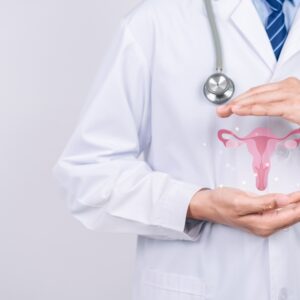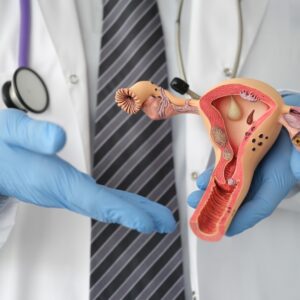Overview
Reproductive health encompasses a wide range of medical services and treatments aimed at maintaining the health and functionality of the reproductive system. This field addresses various conditions and concerns related to fertility, pregnancy, contraception, and overall reproductive well-being. Comprehensive reproductive health care is vital for enhancing quality of life, ensuring safe and healthy pregnancies, and providing individuals with the knowledge and resources needed to make informed decisions about their reproductive health.
Procedure
Reproductive health services include a variety of procedures and treatments tailored to individual needs:
- Fertility Treatments: These may involve medication to stimulate ovulation, intrauterine insemination (IUI), or assisted reproductive technologies (ART) such as in vitro fertilization (IVF). IVF involves retrieving eggs from the ovaries, fertilizing them with sperm in a lab, and transferring the resulting embryos to the uterus.
- Contraception: A wide range of contraceptive methods are available, including hormonal options (pills, patches, injections, and implants), barrier methods (condoms and diaphragms), intrauterine devices (IUDs), and permanent solutions like tubal ligation or vasectomy.
- Pregnancy Care: Prenatal care includes regular check-ups, ultrasounds, genetic screenings, and monitoring to ensure the health of both the mother and the developing baby. Postnatal care addresses recovery after childbirth and supports breastfeeding and infant care.
- Menstrual Health: Treatments for menstrual disorders such as heavy bleeding, painful periods, or irregular cycles can include medications, hormonal therapy, or minimally invasive procedures like endometrial ablation.
- Sexual Health: This includes screening and treatment for sexually transmitted infections (STIs), HPV vaccinations, and counseling on sexual health and practices.
Benefits of Reproductive Health Services
Reproductive health services offer numerous benefits, including improved fertility outcomes, effective pregnancy planning and prevention, enhanced prenatal and postnatal care, and better management of menstrual and sexual health. These services can lead to healthier pregnancies, reduced risk of complications, and overall improved quality of life. They also empower individuals with the knowledge and resources to make informed choices about their reproductive health.
Conditions Treated with Reproductive Health Services
Reproductive health services address a wide range of conditions, including infertility, polycystic ovary syndrome (PCOS), endometriosis, uterine fibroids, hormonal imbalances, STIs, menstrual disorders, and pregnancy-related complications. These services also support individuals and couples in family planning, managing menopause symptoms, and maintaining overall reproductive health.
Recovery and Follow-up
Recovery and follow-up care depend on the specific procedure or treatment received. Fertility treatments may require multiple visits and monitoring, while recovery from contraceptive procedures or pregnancy-related care varies. Regular follow-up appointments are essential to monitor progress, address any complications, and adjust treatments as needed. Ongoing care ensures optimal health outcomes and supports patients in achieving their reproductive health goals.
Risks and Considerations
While reproductive health services are generally safe, potential risks and considerations vary depending on the treatment. Fertility treatments may involve multiple pregnancies or ovarian hyperstimulation syndrome (OHSS), contraceptive methods can have side effects or complications, and pregnancy care requires monitoring for issues like preeclampsia or gestational diabetes. It is crucial to discuss potential risks and benefits with a healthcare professional to make informed decisions and set realistic expectations.
Preparation and Evaluation
Before receiving reproductive health services, a comprehensive evaluation is conducted, including a detailed medical history review, physical examination, and diagnostic tests such as blood work, ultrasounds, or fertility assessments. Pre-treatment instructions may include lifestyle modifications, medication adjustments, or specific preparations for procedures. These preparations ensure the patient is in optimal condition for the planned treatments.
Individualized Approach
Reproductive health care is highly individualized, tailored to meet the specific needs and circumstances of each patient. A skilled healthcare provider will assess the patient’s condition, discuss the potential benefits and risks of various options, and develop a personalized treatment plan. This approach ensures that care is aligned with the patient’s medical needs and reproductive goals, promoting the best possible outcomes and satisfaction.





